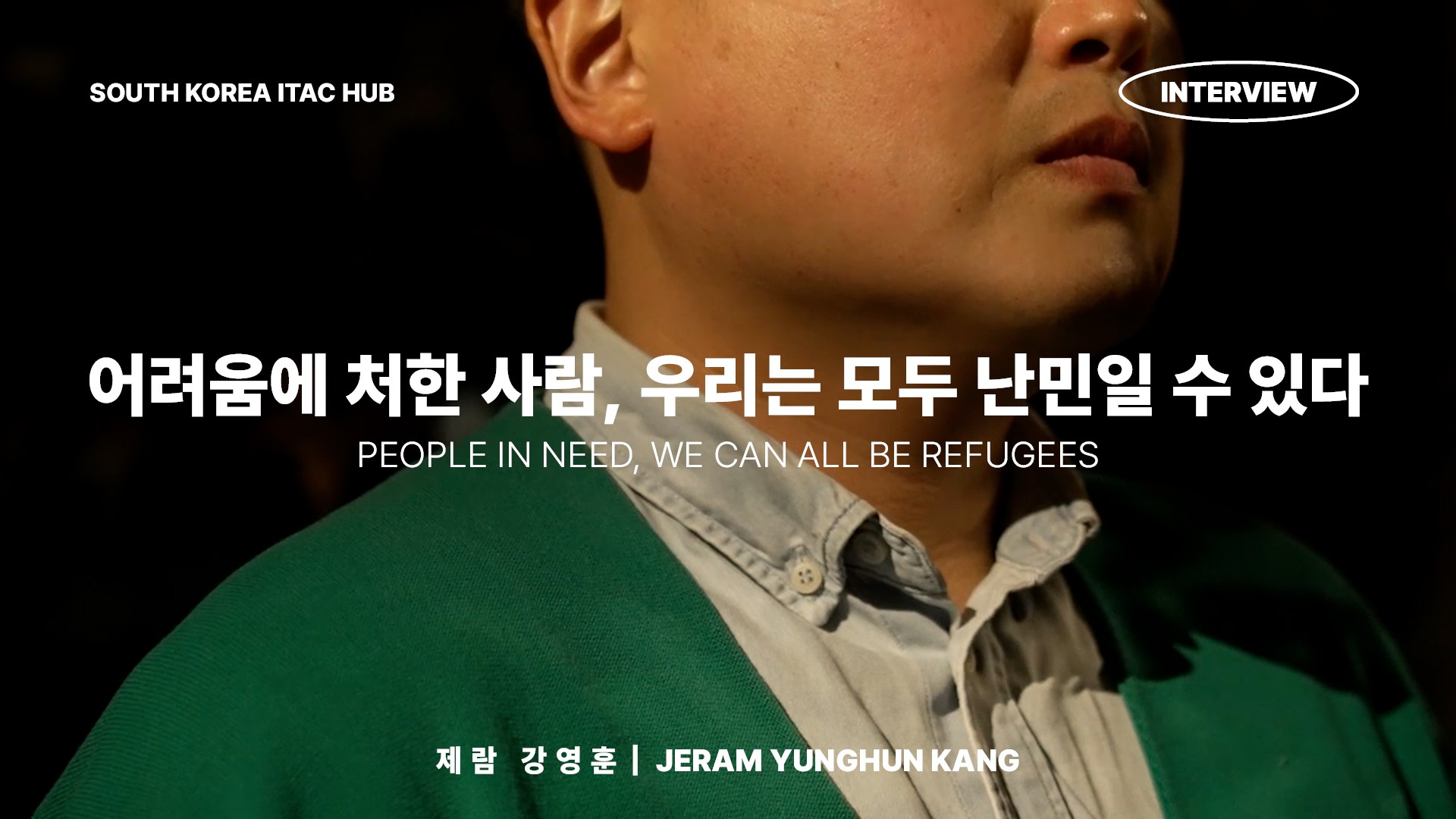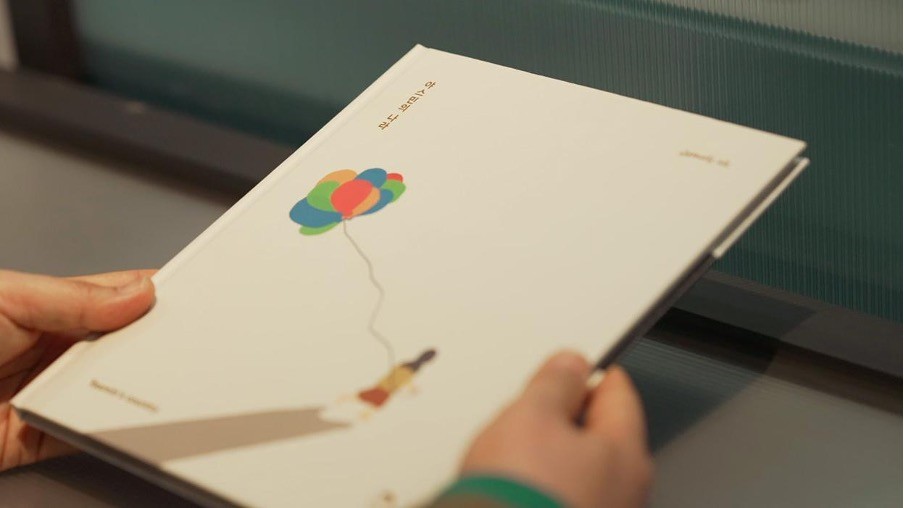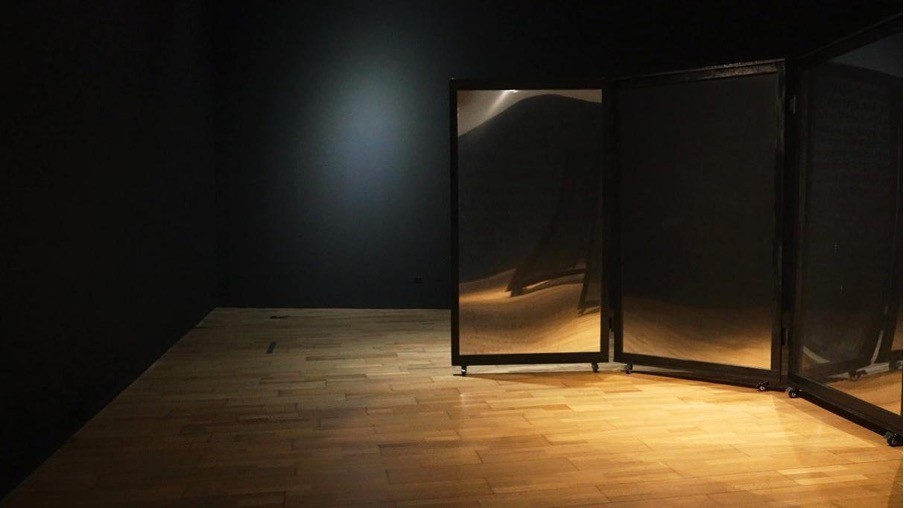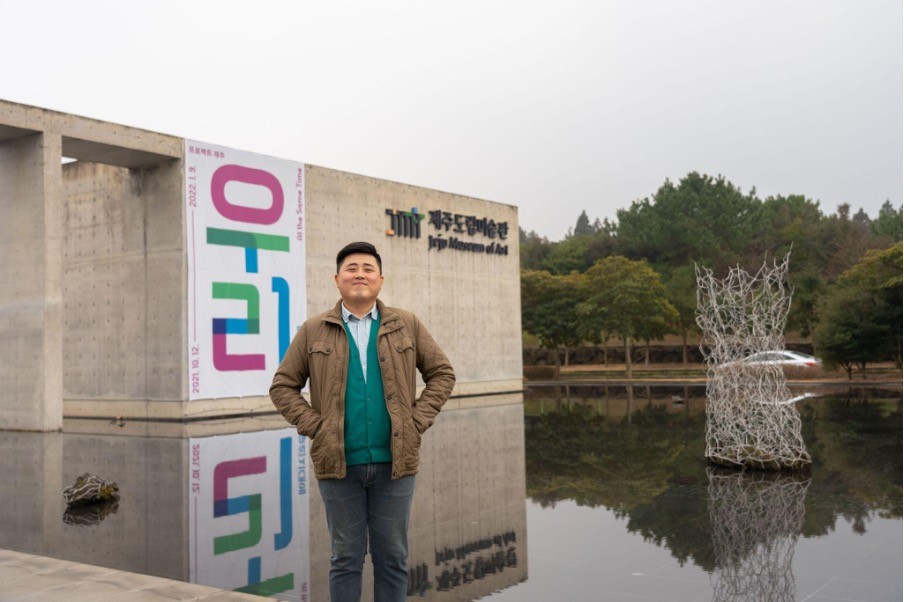September 2
A person from Jeju who wants to capture and express the voices of refugees, sexual minorities, and marginalized people.
To him, refugees are not 'special ones', but just 'people in difficulties' and 'people who cannot talk about their difficulties or are turned away even if they talk about it.'
At the Jeju Museum of Art, I heard the voice of artist Jeram Yunghun Kang, who dreams of ‘diverse’ communication through ‘diverse’ voices by delivering the ‘diverse’ stories of ‘diverse’ people in our society in a ‘diverse’ way.

Hello, I am Jeram. I work on capturing various stories of our society in various forms such as videos, installations, and workshops.
Q. What have you been interested in lately?
I am from Jeju. Yemenis came to Jeju in 2018 and I was curious about their personal stories. Since then, I have been working on refugees. At first, I was trying to capture their voices, so I thought a video would be a suitable medium to start with.
But suddenly, I thought that the way the story is being told should be a little different, as the level of the audience's point of view or the context differs. It could be in a form of a picture book for children or a video, workshop, or an exhibition for adults. As I was contemplating an approach that was tailored to people's life cycle, I even got to write a book.

Some people focus on a particular medium and deeply explore and practice what such medium can convey. But for me, trying to communicate with various people in various ways is the direction of my work and the realm of practice
So I believe, working across genres is an attempt to create a variety of voices. It is an effort to communicate in a variety of ways.

The ‘safe space’ I am aiming for means a physical and relational space where anyone can be themselves. For example, in my workshop, the boundary between the participant and the lead is vague, as I pursue a horizontal relationship rather than a vertical one. And I don’t set the workshop’s outcome beforehand as I hope to create a safe space in which we find together as a journey with an open ending.
Q. Why are you continuously interested in the minority and the marginalized?
The stories I’ve experienced through life and where my heart is heading are important. Everyone has different sensitivities. Mine is that I have a certain compassion for people who don't have enough of their shares. I want to give them some share, and I want to be on their side. In that sense, I want to be a pleasantly biased person.

When I met those who are called 'refugees', we talked about 'who are refugees?' and 'who are non-refugees?’. Eventually, I thought that refugees are people in need, people who are ignored and have no ability to express difficulties.
In that regard, I want to create an environment where we all can be ourselves as I believe some difficulties will disappear if we share our own stories.
Q. Why do you want to interact with other TAs?
Up until now, I felt a bit shy to call myself an artist. I might have tried to tell my stories in my way, or even projected my stories onto others. But I have grown up.
Currently, I am trying to carefully listen to other people’s voices and express them through various ways of thinking rather than projecting myself through others. As an artist and an educator, I would like to expand the field by interacting with others.
Jeram Yunghun Kang
Jeju-based visual arts activist, educator, and researcher. The goal of his practice is to give a ‘small voice with a big impact’ and to create a physical and relational ‘safe space’ where anyone can be themselves. He illuminates the stories of cleaning workers, sexual minority soldiers, and refugees through various media.
Website: youcomeinwecomeout.net